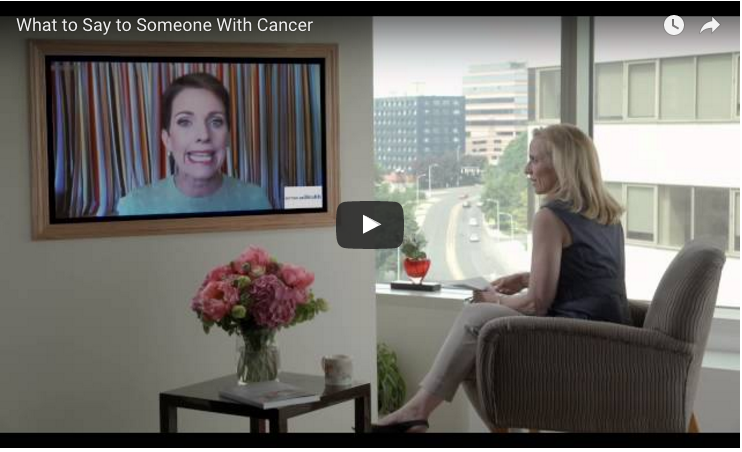“Right, perfect. So what did you want to hear from people after you told them? Sometimes people don’t know what to say or they say the wrong thing, frankly.
People did say a lot of challenging things to me and I sort of wore hats from both sides of the bed, so when I heard something that didn’t settle well for me I had the ability to say, “You know what? That’s not working for me.” For example, I had a number of people—shockingly—say, “My neighbor’s sister-in-law’s cousin’s niece had breast cancer, and she died from it, so good luck.”
What I know for sure is when people try to engage, it comes from a loving place. The majority of the time, when people say things that don’t come across very well, they’re doing the best that they can. What I always recommend is that people begin by saying, “I’m really scared about your diagnosis. I don’t know what to say. I really need help from you to let me know what I can say and how I can be a support to you.” Just being honest and saying, “I have no idea what to say, I want to do my very best, and I really don’t want to say something that’s going to come across as either hurtful or dismissive or anything else, so help me help you.” That’s a nice way to start because it’s sort of disarming, and then you follow up by saying, “Can we make a pact that if I say something really stupid, even though it came from a loving place, will you tell me that it came across the wrong way, and that way I’ll know what works and what doesn’t work for you?” So it’s really a matter of being honest.
It is, and simply speaking. So many people are afraid of that simplicity.”


